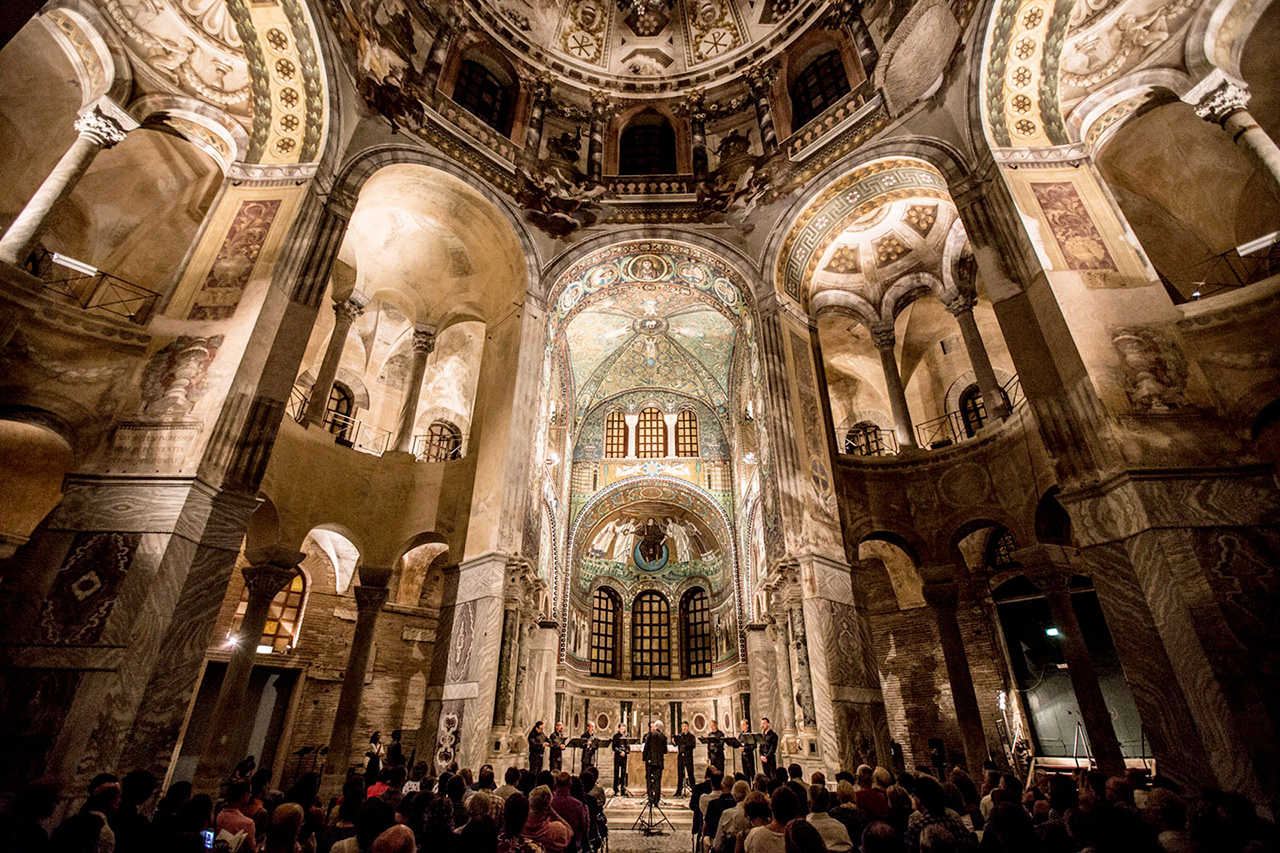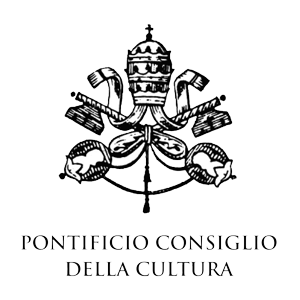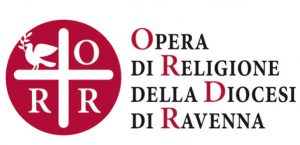© Luca Concas
Vespers at San Vitale
… e immediatamente diventai sapiente
Hildegard von Bingen’s “most troubled visions”
based on an idea by Federica Lotti
music Francesco Maria Paradiso
text Guido Barbieri
Emanuela Faraglia narrator
Pamela Lucciarini soprano
Federica Lotti flutes and vocals
Massimo Marchi live electronics and sound direction
off-stage voice of the Archbishop
Lorenzo Castelluccio
Programma
Scene I Il libro delle creature
Scene II La lingua ignota
Scene III Le visioni
Scene IV La musica
Scene V Il processo
commissioned by Festival delle Nazioni
co-production Ravenna Festival – AGON acustica informatica musica
with the support of SIAE – CLASSICI DI OGGI 2018-19
At sunset, one day in January 1152, Hildegard, the abbess of the Rupertsberg Convent, read the letter in which the Bishop of Magonza informed her that her favourite pupil Richardis von Stade would leave the monastery the next day, after 12 years. It was a very painful separation for Hildegard, who thus decided to entrust to her friend what was dearest to her: her knowledge. Hence, she spent the night writing, for Richardis, an anthology of her books on four parchment sheets: 1) list of stones, herbs and animals that she catalogued in her Physica; 2) a small dictionary of the secret language invented by her; 3) her visions; 4) her musical compositions, the chants they sang together each morning.
Hildegard returned to Ruperstberg in March 1179, twenty-seven years later (Richardis had died long since), and the bishop ordered her to exhume the corpse of an excommunicated man, but she refused to obey. She accepted the punishment, and mentally sent her final chant to the people who were dear to her: Iutta, the nun who had educated her as a child, and Richardis.




